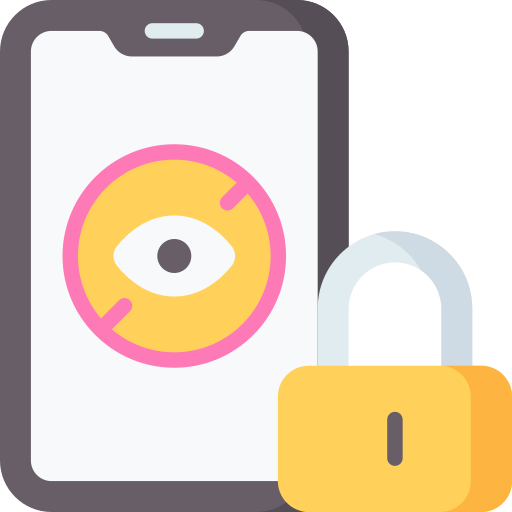The Importance of Parental Control in Nurturing Responsible Digital Citizenship in Children
In the digital age, it is increasingly important for parents to take an active role in teaching their children responsible digital citizenship. Parental control can help ensure that children are using technology safely and responsibly, while also helping them develop good habits when it comes to online behavior. By setting boundaries and expectations around how their children use technology, parents can help foster a sense of responsibility and respect for others in their children’s online interactions.
Parental control can also be used to protect children from potential dangers such as cyberbullying or exposure to inappropriate content. Parents should monitor their child’s online activity and set appropriate filters on devices to block access to certain websites or apps. Additionally, they should have conversations with their children about what is acceptable behavior online and encourage them to think critically about the information they encounter on the internet. By taking these steps, parents can help ensure that their children become responsible digital citizens who understand the importance of respecting others online.
Strategies for Implementing Effective Parental Control Measures to Promote Responsible Online Behavior
Parental control measures are an important tool for promoting responsible online behavior in children and adolescents. By setting limits on the type of content that can be accessed, parents can help ensure their children are not exposed to inappropriate material or activities. Additionally, parental controls can help protect children from cyberbullying and other forms of online harassment.
To effectively implement parental control measures, it is important to have open communication with your child about their online activities. Parents should discuss the importance of responsible online behavior and explain why certain restrictions are necessary. It is also important to set clear expectations for acceptable use of technology and establish consequences for any violations. Finally, parents should regularly monitor their child’s online activity to ensure they are following the rules and staying safe while using the internet.
Balancing Privacy and Safety: Finding the Right Approach to Parental Control in the Digital Age
The digital age has brought with it a host of new challenges for parents, particularly when it comes to balancing their children’s privacy and safety. With the rise of social media, online gaming, and other digital activities, parents are increasingly concerned about how to protect their children from potential harm while still allowing them to explore the internet freely. Finding the right approach to parental control in this environment can be difficult, but there are some key steps that parents can take to ensure their children’s safety without compromising their privacy.
One important step is setting clear boundaries and expectations for your child’s online activity. This includes establishing rules around what sites they can visit, who they can interact with, and how much time they spend online. Additionally, parents should make sure that their children understand why these rules are in place and the consequences for breaking them. It is also important to monitor your child’s online activity regularly so you can identify any potential risks or issues early on. Finally, it is essential to have open conversations with your child about digital safety and privacy so that they understand the importance of protecting themselves online. By taking these steps, parents can find an effective balance between protecting their children’s privacy and keeping them safe in the digital age.
Empowering Parents: Tools and Resources for Monitoring and Guiding Children’s Online Activities
The internet has become an integral part of our lives, and it is important for parents to be aware of the potential risks that come with their children’s online activities. Empowering Parents: Tools and Resources for Monitoring and Guiding Children’s Online Activities provides parents with the tools they need to keep their children safe while using the internet. The website offers a variety of resources such as articles, videos, and webinars that provide information on how to monitor and guide children’s online activities. It also provides tips on how to talk to kids about cyberbullying, sexting, and other digital safety issues. Additionally, there are links to helpful websites where parents can find more information about these topics.
Empowering Parents also offers a range of tools that allow parents to set up parental controls on their child’s devices or accounts. These tools help parents limit access to certain websites or apps, block inappropriate content, track online activity, and even set time limits for device use. With these tools in place, parents can ensure that their children are engaging in safe online activities without sacrificing their privacy or freedom of expression. Ultimately, Empowering Parents provides parents with the knowledge and resources they need to protect their children from potential dangers associated with the internet.
The Long-Term Benefits of Parental Control: Building a Foundation for Responsible Digital Citizenship in Kids
Parental control is an important tool for parents to help their children develop responsible digital citizenship. By setting limits on the amount of time spent online, monitoring content and activities, and teaching kids about safe internet use, parents can ensure that their children are using technology in a healthy way. The long-term benefits of parental control include building a foundation for responsible digital citizenship in kids.
When kids learn how to use technology responsibly from an early age, they will be better equipped to make informed decisions as they grow older. They will understand the importance of protecting their personal information online, respecting other people’s privacy, and being aware of potential risks associated with certain websites or apps. Additionally, by having clear expectations set by their parents regarding appropriate online behavior, kids will be more likely to act responsibly when interacting with others online. Ultimately, parental control helps create a strong foundation for responsible digital citizenship in kids that will serve them well into adulthood.




